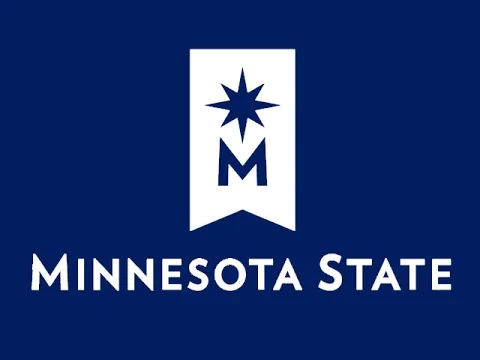MinnState has recently created the Equity and Inclusion Council and has charged the IFO with filling two positions on this Council. The IFO is committed to this work and the Council will be an important new forum for stakeholders within the system to advance the important work of equity and inclusion on our campuses. Listed below, you will find details such as the purpose and scope of the Council as well as the responsibilities and expectations of Council members.
To apply, please send a letter of interest which details your desired term (one, two, or three years) and relevant experience on issues of equity and inclusion to grabowska@ifo.org by 5 p.m. on Friday, May 4. The length of the term will be determined at the time of appointment.
The candidates who are selected to serve will be notified by Wednesday, May 9. The Council will hold its first meeting on Monday, May 14 in St. Paul. Please contact me with any additional questions.
Equity and Inclusion Council Charter:
Type: The Minnesota State Equity and Inclusion Council is a system-wide committee with the charge to help advance equity outcomes and to serve as advisory support to the Chief Diversity Officer.
Purpose: The Minnesota State Equity & Inclusion Council is the principal group responsible for advising the Chief Diversity Officer on strategies, initiatives, programs, and policies that are planned, piloted, adopted, and/or implemented for system-wide benefit and related to matters of equity, inclusion, and diversity.
Scope: The Equity & Inclusion Council receives reports and information regarding issues of system- wide interest from organized subcommittees and other equity and inclusion user groups and committees and provides recommendations to the Chief Diversity Officer and staff. In response to emerging issues, the Council may appoint limited-term subcommittees to further review special issues and provide reports and recommendations for action/consideration. Standing subcommittees will be designated at the first convening meeting of the Council. Areas of focus include policy review, academic equity and student success, campus climate, cultural competency education/training, employee hiring and retention, and supplier diversity,
Responsibilities:
- Act as a forum to facilitate communication among system stakeholders, including students, faculty, staff, administrators and system office staff.
- Examine all relevant data, review best practices, review existing system-wide initiatives, discuss challenges, and identify strategies that could be supported
- Act in an advisory role to system leadership on system-wide equity, inclusion, and diversity issues.
- Make recommendations to the Chief Diversity Officer that result from a process of discovery, planning, adoption, and analysis.
Council Member Expectations:
- Attend and participate in meetings as scheduled.
- Represent the positions of their constituents.
- Work with other Council members to build consensus in Council decisions and recommendations.
- Recommend clear, concise policy and procedure language that meets student, college, university, and system needs
- Represent the policy positions of their constituents
- Communicate policy discussions and recommendations back to their constituents
Council Leadership: The council shall be co-chaired by a council leader to be appointed by the Chancellor before the first convening meeting of the year. The chair and the Chief Diversity Officers will take the lead in identifying issues to be discussed by the Council and to help develop the full Council agenda.
Work-Groups: In order for the committees to function in the most effective manner, ongoing or short-term work groups can be formed to address specific areas addressed in the committee charge. These work-groups may include subject-matter experts who are not currently serving on the Council. Work-groups can forward recommendations to the Council for review and recommendations to the Chief Diversity Officer.
Meeting Times and Dates: The Council will meet on a quarterly basis using formats agreed upon by the consensus of the Council. The system office will pay travel expenses for faculty and student members as needed. Institutions are expected to pay expenses for administrators.
Council Information: The charge document, membership list, meeting schedule, agendas, meeting summaries, and other information will be available and posted publicly.
You must be a member of the IFO to serve as a university faculty representative on this Council. If you not a member of the IFO, you can join here.

